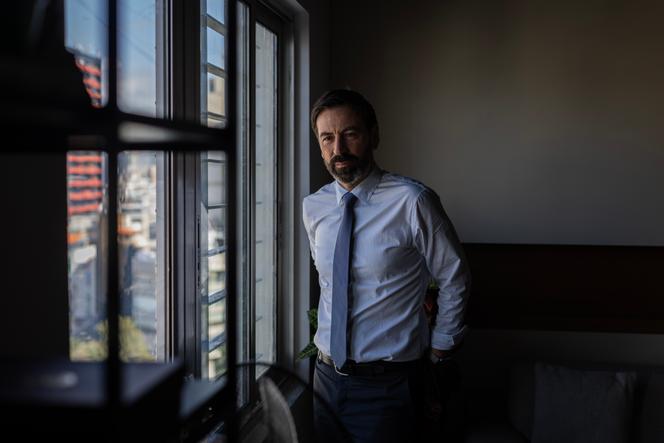


For Fabrizio Carboni, regional director for the Middle East at the International Committee of the Red Cross (ICRC), for it to come to such an expedient as airdrops is a sign of how desperate the situation has become.
It's yet another tragedy in what seems to be a neverending and unbounded humanitarian crisis. A tragedy that illustrates well this crisis. All parties always have a reason, an excuse, but in the end, it's the civilians who pay the price and lack access to essential services. Beyond the number of fatalities, and the people sequestered in Gaza and detained by Israel, the worst about this crisis is that even human pain is being politicized. There is no longer a space outside politics for humanitarianism. This space of humanity should not be politicized or militarized.
There are situations of malnutrition. People are not getting enough to eat. It's always difficult to know whether these are specific cases or whether they reflect more global circumstances. Around our offices in the Gaza Strip, we're seeing children left to fend for themselves. Everything organic is being eaten because it's a source of calories. It's a terrible situation. What the ICRC has managed to get into Gaza is totally insufficient. There's currently a debate about whether three, 10 or 20 trucks should go in, but the needs are infinitely greater.
At the very least, we need to de-escalate hostilities and put certain humanitarian principles back at the center. When it was formalized in the 1949 Geneva Conventions, the beauty of the concept of the law on armed conflict and humanitarianism was that humanitarian rule was not conditional on political or military considerations. The second founding concept is the absence of reciprocity. Just because you kill my civilians doesn't mean I'm going to kill yours. All that has been completely brushed aside. I don't know how we can bounce back from it. At the ICRC, we continually stress these rules, but in the end, it's the states and the parties involved in the conflict that have to apply them.
Because priority is given to military rather than humanitarian activities. There's also the fog of war. Because the Gaza Strip is densely populated, people can't flee and violence is taking place over the whole territory, we're working on a battlefield, which is not what humanitarian work is about. The number of humanitarian workers killed is unprecedented. Any movement outside our office, even over short distances, is coordinated with the Israeli army.
You have 57.55% of this article left to read. The rest is for subscribers only.
